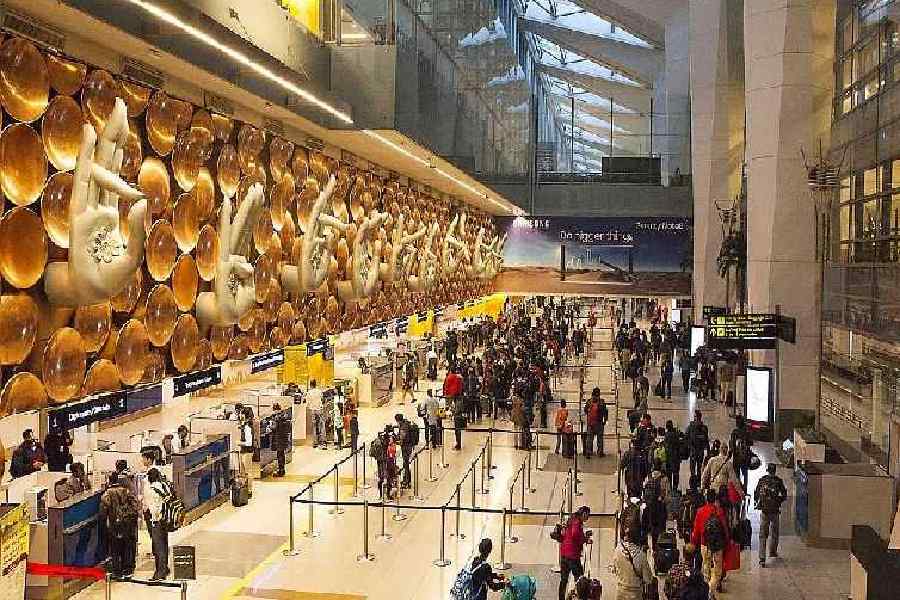The Delhi airport will join the club of airports having an annual passenger handling capacity of 100 million with the inauguration of the expanded Terminal 1, which has a capacity of 40 million.
Prime Minister Narendra Modi virtually inaugurated the expanded Terminal 1 (T1), having a total area that has tripled to 2,06,950 square metres.
All entry gates have Facial Recognition System (Digi Yatra), 20 Automated Tray Retrieval Systems (ATRS), Individual Carrier System (ICS), 108 Common Usage Self Service (CUSS) and 100 check-in counters, including 36 Self Baggage Drop (SBD) kiosks, according to airport operator DIAL.
As per DIAL, the airport will join the club of airports having an annual passenger handling capacity of 100 million following the expansion of T1.
The annual passenger handling capacity of T1 will increase to 40 million from 17 million.
The Indira Gandhi International Airport (IGIA), operated by the Delhi International Airport Ltd (DIAL), handles around 1,500 flight movements daily.
Currently, the airport has three terminals -- T1, T2 and T3.
T1's capacity is 40 million, T2 (15 million) and T3 (45 million).
Ahead of the virtual inauguration of the expanded T1 by Modi, Minister of State for Civil Aviation VK Singh and Delhi Lieutenant Governor VK Saxena spoke at a function at the Delhi airport.
Singh said 15 projects are being inaugurated today, and together, these will take the total number of airports in the country to more than 160.
Ten years ago, the number of airports was at 74, he added.
Prime Minister Narendra Modi-led NDA government came to power in 2014.
On Sunday, Modi inaugurated 12 new terminal buildings at Delhi, Pune, Kolhapur, Gwalior, Jabalpur, Lucknow, Aligarh, Azamgarh, Chitrakoot, Moradabad, Shravasti and Adampur airports.
He also laid the foundation stone of three new terminal buildings of Kadapa, Hubballi and Belagavi airports.
Except for the headline, this story has not been edited by The Telegraph Online staff and has been published from a syndicated feed.










